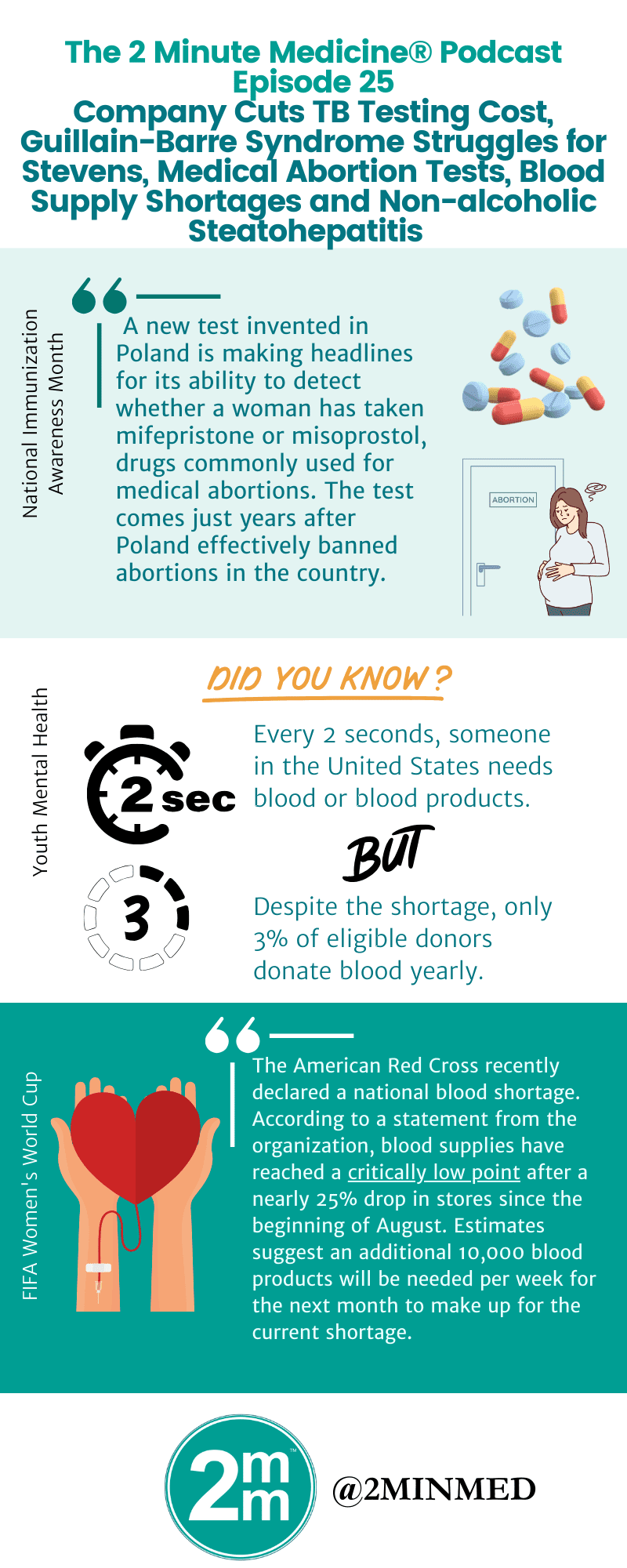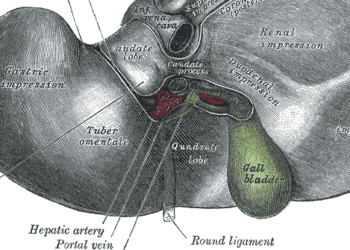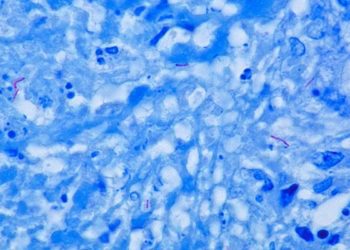The 2 Minute Medicine Podcast Episode 25
October 6th 2023
Welcome to the 2 Minute Medicine Podcast, summarizing the latest medical studies, curated and written by practicing physicians. On this podcast, twice a month, we cover the latest in healthcare news and research evidence.
Our episode is live!
Episode Description
We begin this episode by discussing our article of the week from the New England Journal of Medicine, entitled “Randomized, Controlled Trial of the FGF21 Analogue Pegozafermin in NASH”.
In the second half of our episode, we begin by exploring the recently announced price drop for a popular tuberculosis test. Then we discuss Sufjan Stevens’ ongoing battle with the rare autoimmune condition, Guillain-Barre Syndrome. Finally, we end with a conversation about newly developed tests to identify medical abortions and the ongoing American Red Cross blood supply shortage.
Transcript
[Deepti] Welcome to the 2 Minute Medicine Podcast, summarizing the latest medical studies, curated and written by practicing physicians.
For our full suite of daily medical study summaries and updates written by practicing doctors, please visit our website at 2minutemedicine.com to start reading new daily content right now, for free. On this podcast, twice a month, we cover the latest in health care news and research evidence. We are your hosts Deepti and Andrew. On today’s episode, we’ll start off by discussing our two articles of the week. In the second half of the episode, we will look at health issues that have arisen in popular media.
[Andrew] Our article of the week comes from the New England Journal of Medicine and is entitled “Randomized, Controlled Trial of the FGF21 Analogue Pegozafermin in NASH”.
Non-alcoholic steatohepatitis (or NASH) is a disease characterized by hepatic inflammation and excess fat accumulation with or without fibrosis of the liver. Pegozafermin is a long-acting recombinant fibroblast growth factor 21 analog pegylated with the use of site-specific glycosyltransferases. It is currently being developed for the treatment of NASH and severe hypertriglyceridemia. However, there is a gap in knowledge as to understanding whether pegozafermin therapy improves hepatic steatosis, markers of inflammation, hepatic fibrosis, circulating lipid levels, or glycemic control.This phase 2b double-blinded, randomized, placebo-controlled trial studied 22 patients with biopsy-confirmed NASH. Patients who were 21 to 75 years of age and had NASH as confirmed on a biopsy no more than six months before screening were eligible for the study. Patients who had liver disease other than NASH, cirrhosis, uncontrolled or newly diagnosed diabetes, or any illness that might affect the results of the trial were excluded from the trial. The primary outcomes measured were an improvement (reduction) in fibrosis of at least one stage, without worsening of NASH (defined as an increase in ballooning, inflammation, or steatosis), and NASH resolution (defined as the total absence of ballooning and absence or mild inflammation) without worsening of fibrosis (an increase of ≥1 stage). Based on the primary analysis, 7% in the pooled placebo group, 22% in the 15mg pegozafermin group (difference versus placebo, 14%; 95% Confidence Interval [CI], −9 to 38), 26% in the 30mg pegozafermin group (difference, 19%; 95% CI, 5 to 32; p=0.009), and 27% in the 44mg pegozafermin group (difference, 20%; 95% CI, 5 to 35) showed significant improvement in fibrosis. For patients who met the criteria for NASH resolution, the following percentages were reported: 2% in the placebo group, 37% in the 15mg pegozafermin group (difference vs. placebo, 35%; 95% CI, 10 to 59), 23% in the 30mg pegozafermin group (difference, 21%; 95% CI, 9 to 33), and 26% in the 44mg pegozafermin group (difference, 24%; 95% CI, 10 to 37). In summary, this study demonstrates that pegozafermin leads to improvements in fibrosis and NASH resolution in patients with biopsy-proven NASH. Overall, this study found that pegozafermin treatment for 24 weeks led to improvements in fibrosis with both weekly and every two-week administration in patients with biopsy-confirmed NASH. This study was limited by its short duration and with lack of racial diversity as most of the study patients were White which can limit generalizability. Nevertheless, these study’s findings are significant, as they demonstrate that pegozafermin may be effective in improving fibrosis in patients with NASH.
[Deepti] We are excited to share with you that the 2nd edition of The Classics by @2minmed has just been released!
This book is a collection of landmark trials that have shaped medical practice in recent decades, summarized and curated by practicing physicians. There is even a dedicated section on #Covid_19! Purchase your copy on Amazon today! bit.ly/2zZnJt9
[Andrew] Now for The Scan.
The Story: A costly test for tuberculosis (TB) will receive a price drop after many people advocated for affordable access to the test. Cepheid, a diagnostic company owned by Danaher Corporation, agreed to reduce the price of its GeneXpert product single-use TB test cartridges by 20% to sell them at cost in high-TB-burden countries, receiving no profit. The price drop is the first of its kind in 13 years and comes after years of advocating from organizations such as Doctors Without Borders, including a recent push by famous author and YouTuber John Green. Let’s briefly review the pathogenesis and prevalence of TB.
[Deepti] In a nutshell, TB is a bacterial infection caused by Mycobacterium tuberculosis. The disease most commonly infects the lungs, causing symptoms such as cough and chest pain. Still, it can also affect other parts of the body, including the genitourinary and skeletal systems. Estimates suggest that about one-quarter of the world’s population is infected with TB. In most cases, the infection is latent—meaning the bacteria live in the body without causing disease symptoms and cannot be spread to other people. When the infection becomes active, the bacteria can spread through the air and transmit to others. Despite having effective treatments to treat the disease, TB still represents the second leading cause of death by infectious diseases worldwide, with approximately 1.6 million people dying from the disease each year. Most TB cases occur in low- and middle-income countries, and those with HIV are around 16 times more likely to become sick with the disease than those without.
[Andrew] The Cepheid GeneXpert test has revolutionized the diagnosis of TB as it can reliably identify TB infections and is an improvement over other less-accurate diagnostic techniques using microscopes, making sure those who are infected get the treatment they need. The test can also assess for resistance to a commonly used TB drug, Rifampin. However, Cepheid has decided to maintain the cost of another one of its tests, the XDR-TB test, at $14.90 per cartridge, which is more than triple what it costs to produce. The XDR-TB can test for extensively drug-resistant TB, the deadliest form of the disease, and can indicate whether the bacteria are resistant to multiple medications. Due to improper prescribing of TB drugs, failing to complete a full course of TB treatment, or treatments not being available, drug-resistant TB is becoming an increasing concern. A common medication to treat multi-drug resistant TB called bedaquiline is produced by Johnson & Johnson. Much like Cepheid, the company received public pressure when it tried to extend its patents for the drug to maintain a monopoly over the world’s supply of the much-needed medication. Millions of public funding have supported the developments of GeneXpert and bedaquiline, adding further frustration to the pricing of these much-needed technologies. Making diagnostic and therapeutic options readily available is necessary to decrease the burden of TB worldwide.
[Deepti] Next, let’s discuss how the American singer and songwriter Sufjan Stevens has had to pause the promotion of his new album due to a recent bout of Guillain-Barre Syndrome (GBS). After apparently waking up one morning unable to walk, Stevens was soon diagnosed with the autoimmune condition and has been receiving treatment since. Stevens joins a growing list of musicians who have postponed tours and promotion due to medical issues, including Bruce Springsteen, who is currently suffering from peptic ulcer disease, and Madonna, who canceled shows following a bacterial infection.
GBS is a rare autoimmune disorder that results when the body attacks and destroys the coating of peripheral nerves, causing disruptions in nerve transmission. Symptoms of the condition include weakness, paralysis, pain, sensations of pins and needles, double vision, and more. In more severe cases, difficulty breathing can result. The condition often precipitates following a previous infection, or can sometimes happen in the weeks following certain vaccinations. Most people start to recover in the weeks following symptom onset, but for some, recovery can be a long process with no complete resolution, never fully regaining their strength.
Getting prompt treatment is one of the best ways to promote recovery and prevent severe complications and death due to GBS. Stevens reportedly received immunoglobulin infusions—high doses of antibodies that block the effects of the aberrant immune response. Plasma exchange is another standard treatment for the condition, which involves removing the antibodies in the blood that contribute to the autoimmune attack. Stevens is now receiving intensive physical therapy to help regain strength and mobility. The musician hopes to make a full recovery from the condition, much like the approximately 80% of people whose symptoms resolve in 6-12 months. Next up, let’s take a closer look at medical abortion tests
[Andrew] A new test invented in Poland is making headlines for its ability to detect whether a woman has taken mifepristone or misoprostol, drugs commonly used for medical abortions. The test comes just years after Poland effectively banned abortions in the country.
Prior to the advent of this new test, determining whether a woman had undergone a medical abortion was effectively impossible — the symptoms of a medical abortion are essentially identical to that of a miscarriage, and the medications used for abortions, such as mifepristone and misoprostol, do not show up on toxicology reports. However, these new tests can detect these medications in humans and are being used to investigate pregnancy outcomes in the country. Some have claimed that these tests have been developed to combat the use of abortion pills from illegal sales and the possible threats this could pose to public health. Whatever the reason for the invention of the test, there is serious concern about what this could mean for abortion access worldwide.
There is worry surrounding these tests and whether they could eventually be used in the United States, especially following the overturning of Roe v. Wade and the many attempts across the country to restrict access to these medications that the test detects. The news of these tests comes at the same time as a recent poll which suggests that the overturning of Roe v. Wade has over a third of women aged 18-39 themselves or someone they know “decided not to get pregnant due to concerns about managing pregnancy-related emergencies.” Furthermore, 23% of women the same age reported knowing someone who was unable to obtain an abortion, regardless of the state they were living in and the current abortion climate there. Last but not least, let’s discusss the blood supply shortage.
[Deepti] The American Red Cross recently declared a national blood shortage. According to a statement from the organization, blood supplies have reached a critically low point after a nearly 25% drop in stores since the beginning of August. Estimates suggest an additional 10,000 blood products will be needed per week for the next month to make up for the current shortage. Natural disasters and travel have been identified as the causes of the current blood donation shortfalls. Due to Hurricane Idalia, which hit Florida a few weeks ago, and a high travel month, donations have decreased, and blood donations have gone uncollected. Other factors affecting the shortage include more people working from home since the pandemic, resulting in less fruitful company blood drives and a post-pandemic drop in high school and university blood drives.
Blood donations are vital to the operation of the healthcare system, as it is estimated that every 2 seconds, someone in the United States needs blood or blood products. Blood transfusions can be used for patients with illnesses such as leukemia and kidney disease, to replenish blood loss following surgery, or for those who experience traumatic events such as car crashes.
[Andrew] That’s right. Chrissy Teigen shared her blood transfusion experience when she experienced bleeding during her pregnancy in 2020, and back in 2016, Nick Cannon received five blood transfusions following lupus complications. Despite the dire need for blood products, estimates suggest that only 3% of eligible donors donate blood yearly. Many celebrities in the past have encouraged Americans to support the American Red Cross through blood donation, including Jamie Lee Curtis, Jackie Chan, Rascal Flatts, Peyton Manning, and many more. If you would like to help with the current shortage, look for a blood donation center near you!
Thank you for joining us today for this episode of the 2 Minute Medicine Podcast. New episodes come out every other week and all of our content has been curated and written by practicing physicians.
Please head to our website at 2minutemedicine.com to learn more and to access all of our content including medical study summaries, visual abstracts, excerpts from our Classics book series which is available on Amazon, and The Scan, which is our medical newsletter.
Thank you so much once again. To make sure that you don’t miss any of our content please subscribe and follow us on Twitter or Instagram @2MinMed
©2023 2 Minute Medicine, Inc. All rights reserved. No works may be reproduced without expressed written consent from 2 Minute Medicine, Inc. Inquire about licensing here. No article should be construed as medical advice and is not intended as such by the authors or by 2 Minute Medicine, Inc.








![Reinnervation of cardiac infarcts decreases subsequent arrhythmia incidence [PreClinical]](https://www.2minutemedicine.com/wp-content/uploads/2015/02/1280px-Heart_ant_wall_infarction-75x75.jpg)
